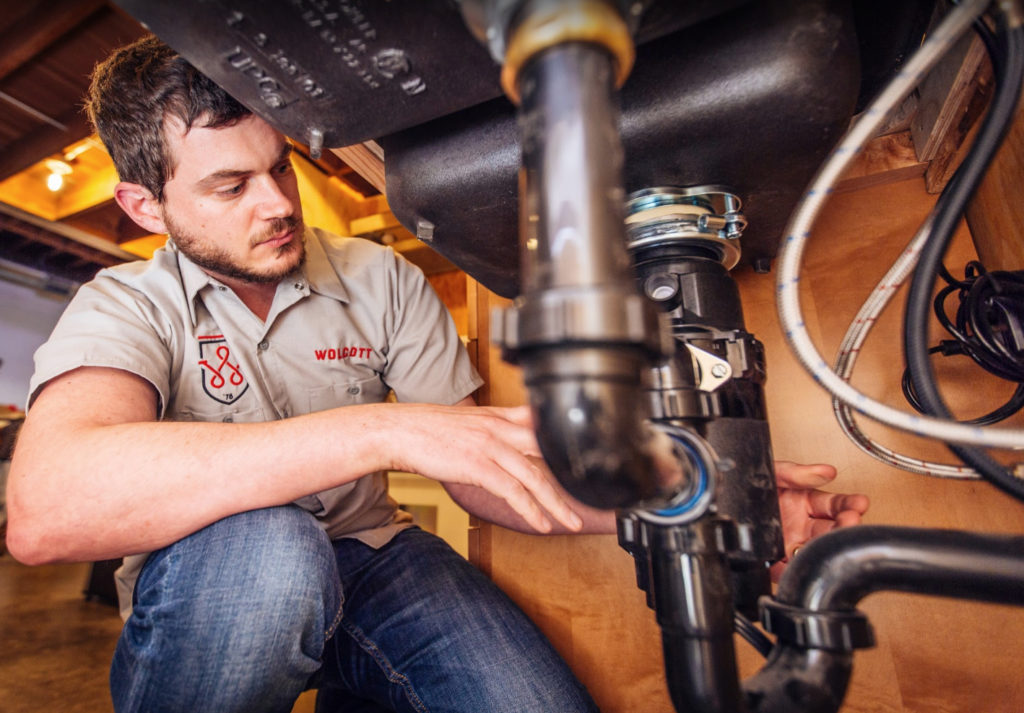Why You Should Think About Hiring A Plumber
Fixing your own plumbing can be a difficult and intimidating thing to try. There are so many things to know, and it seems like it could be easy to accidentally break something and make the problem worse. However, taking care of common plumbing problems can be easy with the proper knowledge. Read on for some practical tips on solving and avoiding plumbing issues.
Before starting any plumbing project be sure to turn off the main water supply. Water damage can be one of the most expensive things to repair. To minimize damage turn the main water supply off as well as any shut off valves near where you are working. This will save a great deal of hardship later on.
If your pipes bang when you turn on the water, and all the pipes are anchored correctly, you should add some straps or cushion the pipes with a rubber blanket. There may be times when you will need to do both. Make sure that if you have copper pipes, you are not using galvanized straps.
Do not put cooking oils, fat, or grease, down your drain. These fats cause clogs by solidifying in pipes. To properly dispose of fats, put them in a bowl with a lid that you can dispose of. Once it gets hard, throw it in the trash or compost bin.
To winterize a house that will sit unused during the winter months, you must completely drain all of the pipes. After turning off the main water supply, let all of the water drain from the faucets, toilets, and water heater (turn off the gas). Add a quart of antifreeze to sinks and the tub to prevent water from freezing in the drain trap.
Check how well your toilets are flushing. If the handle needs to be played with in order to keep the water from running constantly, or if it needs to be held down several times in order to flush, you may need to switch out some of the parts in your tank. This is not expensive, and it could help reduce your monthly water bill. It could also mean that you avoid the embarrassment of the flushing system breaking when you have visitors!
Use strainers in all drains to catch hair and other objects. This will prevent all the material from going down the drain and causing a clog, which can cause a bigger problem down the line. Clean out the strainers daily so that you don't start getting backup of water in your sink or tub.
Make sure you clean out overflow holes in your kitchen and bathroom sinks on a regular basis. These holes are intended to act as an emergency fail-safe to prevent spillage from a full sink, but if they are clogged they can't do their job. You can clean out an overflow hole using the same techniques you would for a clogged drain.
Ensure that your sink's overflow holes are clear. The overflow holes help prevent a sink from spilling. When blocked, they don't work properly and the water can spill out onto the floor. When checking for potential problems and repairs, you should also remove obstructions from the overflow holes.
You can remove unsightly mineral buildup from your shower head by soaking it in vinegar overnight. This loosens the deposits, and in the morning you only need to wipe off the residue with a rag. If your shower head is high up an not removable, place vinegar in a plastic bag, slip the bag over the shower head and hold in place with a twist tie.
Before you can fix a toilet that does not flush properly, it is important that you find out what is causing the problem. Depending on what the problem is, you may be able to fix it yourself. However, more complicated toilet flushing problems may require the services of a plumber.
Avoid using harsh chemicals to clear clogged drains by purchasing a hand-held manual auger. A drain auger is a one-time purchase as opposed to purchasing a new bottle every time a drain is clogged. This is especially helpful for people who deal with clogged drains often, such as people with long hair or kids who like to drop things down the drain.
Avoid pouring grease or oil down your kitchen sink drain. Grease and oil can build up in your pipes and cause a backup. Instead, wait for the grease or oil to cool and solidify and either throw it away or see if there's a place to recycle it near your home.
As you can see, solving plumbing problems isn't so hard when you know what you're doing, or if you have the right advice. When you are well-informed it can save you agreat deal of money. Make a note of what you've learned in this article and see how easy it is either to fix your own plumbing problems, or at the very least, ensure that you get a good service from a professional.

